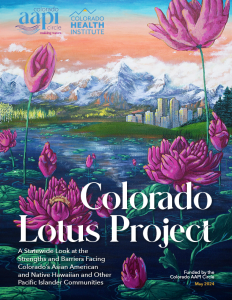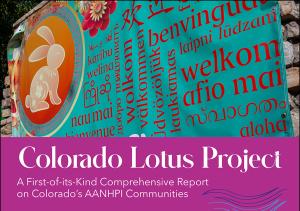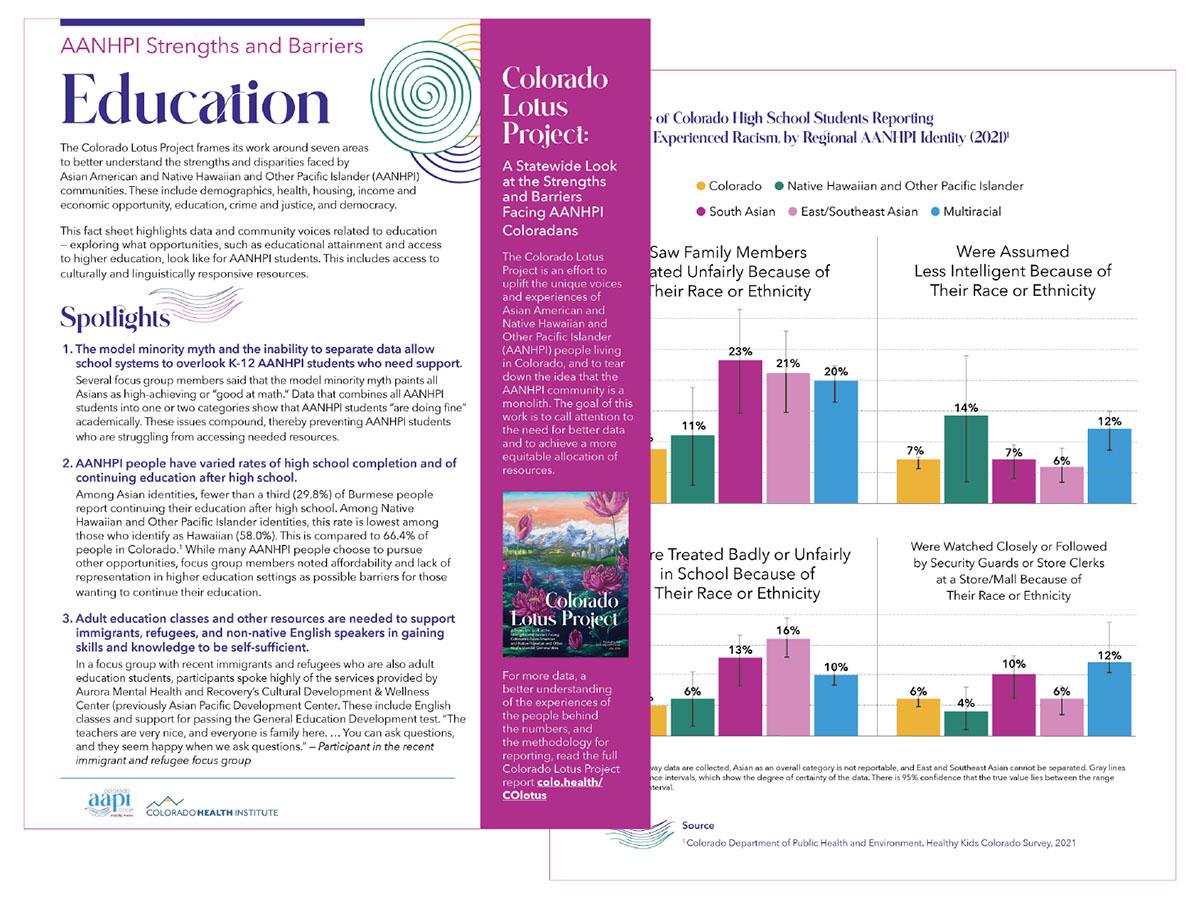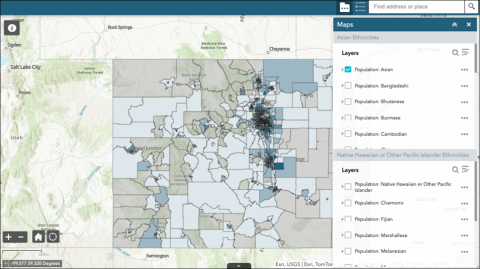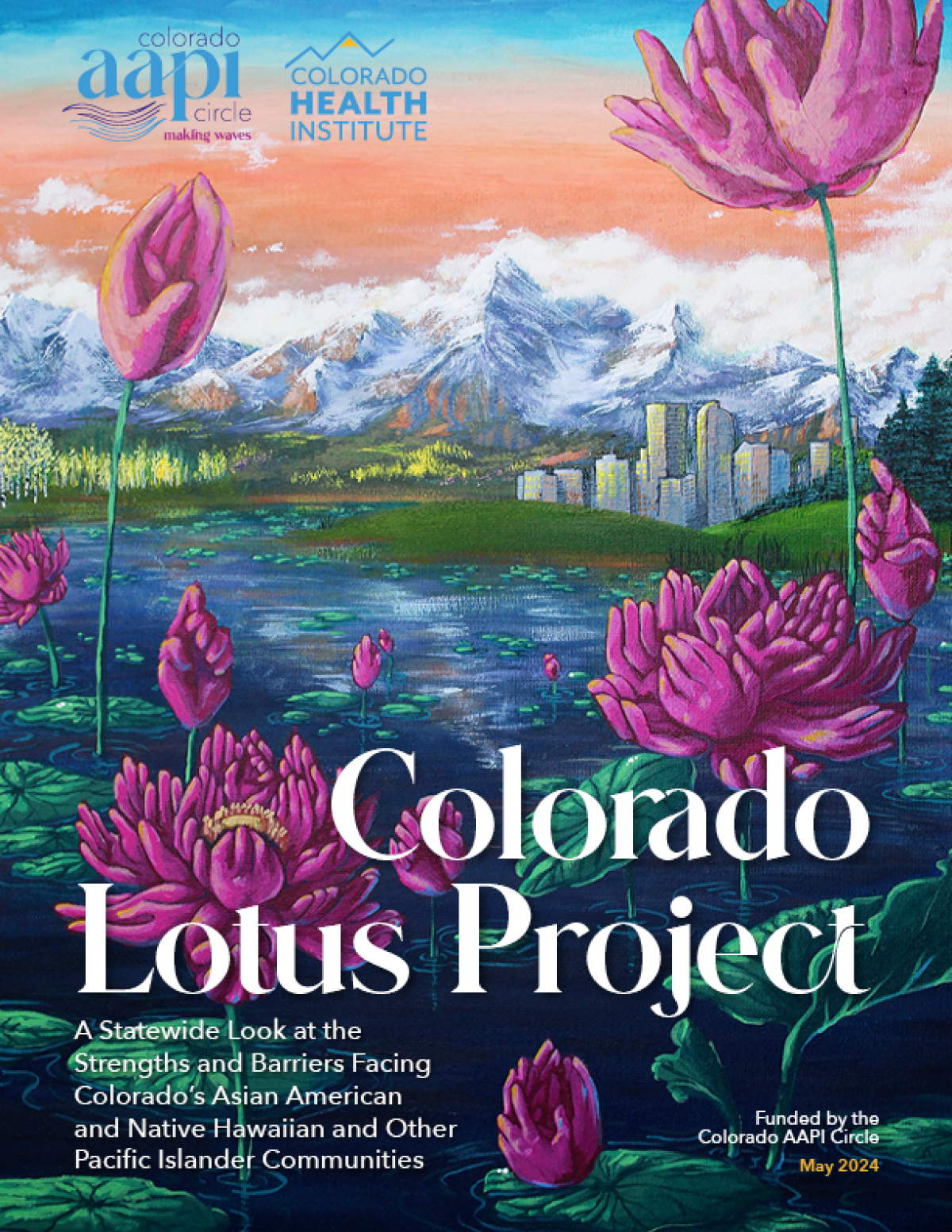
The Colorado Lotus Project is a groundbreaking effort to uplift the unique voices and experiences of Asian American and Native Hawaiian and Other Pacific Islander (AANHPI) people living in Colorado. This project was created by the Colorado AAPI Circle and the Colorado Health Institute. In partnership with the community, including an advisory group of 10 AANHPI community members and leaders, the Colorado Lotus Project highlights the diverse experiences of Colorado’s AANHPI communities, tearing down the idea that they are one monolithic group.
The project involves a thorough analysis of data on AANHPI communities by extracting richer information from existing datasets, using a technique called disaggregation. Through disaggregation, we can see beyond the “Asian Americans and Pacific Islanders” label and learn about people in Colorado who identify as Chamorro, Japanese, Hmong, Nepali, Samoan, or any of the dozens of other AANHPI ethnic groups who call Colorado home.
But data alone does not solve problems. The Colorado Lotus Project also integrates first-person storytelling. Voices and faces can help us see what’s important in the data — and what’s missing.
This dual approach aims to call attention to an essential need for better data and equitable resource allocation while fostering a nuanced understanding of the diverse experiences within AANHPI communities.
The Colorado Lotus Project frames its work around seven areas to help Coloradans to explore the data and understand AANHPI experiences.
- Demographics: the overall composition of AANHPI people in Colorado and where they are living
- Health: the state of health for AANHPI people in Colorado, including physical and mental health and access to care
- Housing: Access to affordable and high-quality housing
- Income and economic opportunity: factors needed to thrive, such as income, livelihood, and entrepreneurship
- Education: opportunities and access to culturally and linguistically responsive education and resources for AANHPI students in Colorado, including diversity of teachers and staff
- Crime and Justice: topics such as representation in court and legal systems and experiences with crimes, racism, and policing
- Democracy: opportunities or barriers to civic engagement and voting and representation of elected officials


